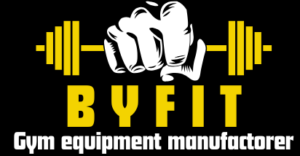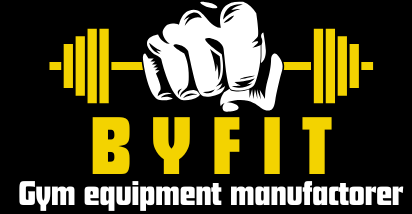Choosing between rubber rolls and tiles for your gym floor can be a tough decision. It’s like picking between two heavyweight champions – both are strong, but their strengths are best suited for different situations. So, how do you decide which one is right for your gym?
Rubber rolls are great for covering large areas quickly, giving a smooth, professional look. Rubber tiles, meanwhile, are easier to handle and install, perfect for smaller spaces or if you like to DIY.
](https://www.byfitgear.com/wp-content/uploads/2025/02/Rubber-Rolls-vs-Tiles-scaled.jpeg) Rubber Rolls vs Tiles Gym Flooring
Rubber Rolls vs Tiles Gym Flooring
Let’s dive a bit deeper to help you figure out which option is the knockout choice for your gym. It’s not just about looks; we need to consider installation, use, and what fits your space best. We’ll break it all down for you.
What Are the Pros and Cons of Rubber Rolls vs. Tiles?
Choosing flooring is like picking a workout buddy. You want someone who complements your routine, not complicates it. Let’s break down the strengths and weaknesses of rubber rolls and tiles, so you can find your perfect match.
Rubber rolls1 offer a seamless finish, ideal for large, open gym areas, providing great coverage and durability. But, they can be tricky to install by yourself. Tiles, on the other hand, are a breeze to install and replace, perfect for customizing smaller areas or if you damage a section.
Rolls vs. Tiles
Think of rubber rolls as the marathon runners of gym flooring – they go the distance. They’re perfect for covering large areas quickly, giving you that sleek, professional look. But, just like a marathon, installation2 can be long and tiring, often needing a pro team. On the flip side, rubber tiles are like sprinters – quick and agile. They’re super easy to install, even if you’re not a DIY expert. Plus, if one tile gets damaged, you just swap it out. No need to redo the whole floor! BYFIT offers both, so you’re covered whether you’re sprinting or going long distance. Let’s look at this in a bit more detail:
| Feature | Rubber Rolls | Rubber Tiles3 |
|---|---|---|
| Installation | Tricky, might need pros | Easy, DIY-friendly |
| Look | Seamless, great for large areas | Visible seams, but customizable |
| Durability | Top-notch, especially in high-traffic zones | Very durable, easy to replace individual tiles |
| Cost | Can be more budget-friendly for big spaces | Might be pricier per square foot, but easier to manage in small quantities |
| Use Cases | Commercial gyms, large fitness centers | Home gyms, CrossFit boxes, areas needing custom layouts |
BYFIT Offer: High Quality, Customizable LOGO.
Choosing between rolls and tiles really boils down to your gym’s size, your budget, and how much you love a good DIY project.
Which Is Easier to Install: Rubber Rolls or Tiles?
Installing gym flooring shouldn’t feel like an extreme workout. You want something straightforward, right? So, let’s get straight to it: which is easier to put down, rolls or tiles?
Rubber tiles are the clear winner for easy installation. Think of them as puzzle pieces that easily click together. Rolls, however, require more muscle and precision, often needing a professional’s touch.
Installation Ease
Imagine you’re setting up for a big event. Would you rather wrestle with a giant, unwieldy carpet, or arrange smaller, manageable pieces? That’s the difference between rolls and tiles. Tiles let you work section by section, making adjustments as you go. No heavy lifting, no stress. Rolls, though, are like trying to perfectly align a huge sticker – one wrong move, and you’re starting over. Plus, with tiles, if a section gets damaged, you just replace that piece. With rolls, it’s a much bigger deal. BYFIT’s tiles are designed for simplicity, ensuring your gym setup is more about fitness and less about frustration. Let me give you a simple table, and you will understand.
| Factor | Rubber Rolls | Rubber Tiles |
|---|---|---|
| Complexity | High, often requires professional installation | Low, DIY-friendly4 |
| Tools Needed | Specialized tools may be required | Basic tools, or sometimes none at all |
| Time | Longer installation time | Quicker installation |
| Adjustments | Difficult to adjust once laid | Easy to adjust and reposition |
| BYFIT Tips | We recommend using our installation guide and consider professional help. | We provide easy-to-follow instructions and tips. |
](https://www.byfitgear.com/wp-content/uploads/2025/02/DIY-Gym-Flooring-Installation.jpeg) Easy to Install Rubber Tiles
Easy to Install Rubber Tiles
Is Rubber Flooring Good for Home Gyms?
Bringing the gym home has become the new normal for many. But is rubber flooring5 the right choice for your personal fitness space? Will it really stand up to your workouts, and is it worth it?
Absolutely, rubber flooring is a fantastic choice for home gym6s. It protects your floors, reduces noise, and provides a safe, comfortable surface for any workout. It’s like having a professional gym setup, right in your home.
Home Gym Benefits
It’s not just about protecting your floor from dropped weights, although that is important. Rubber flooring in your home gym is a game-changer. It’s like setting up a professional sports court in your backyard. It absorbs impact, reducing the strain on your joints, and muffles the sound of your workouts, keeping the peace with your neighbors (or family!). Plus, cleaning is a breeze – just a quick wipe, and it’s good as new. BYFIT’s rubber flooring options7 bring durability, safety, and even a touch of style to your home gym, making every workout better. And trust me, the easy maintenance will make you love it even more after those intense sessions.
| Benefit | Description | BYFIT Advantage |
|---|---|---|
| Protection | Shields your subfloor from damage caused by dropped weights, heavy equipment, and high-impact activities. | Durable materials designed to withstand heavy use. |
| Safety | Provides a non-slip surface, reducing the risk of slips and falls during workouts. | Enhanced traction to keep you secure. |
| Comfort | Offers cushioning and shock absorption, making workouts easier on your joints. | Optimal thickness for comfort and support. |
| Noise Reduction | Dampens sound, creating a quieter workout environment, which is especially beneficial in multi-story homes or apartments. | Excellent soundproofing qualities to maintain a peaceful home. |
| Maintenance | Easy to clean and maintain, requiring simple sweeping and occasional mopping to keep it looking new. | Stain-resistant and easy-to-clean surfaces. |
BYFIT Offer: We have rubber flooring is the best choice for home gyms
](https://www.byfitgear.com/wp-content/uploads/2025/03/home-gym-rubber-floring-scaled.jpg) Rubber Flooring for Home Gyms
Rubber Flooring for Home Gyms
What Is the Best Thickness for Rubber Gym Flooring?
Choosing the right thickness for your gym flooring is like picking the right weight for your workout – it needs to match your activity level. Too thin, and you won’t have enough protection. Too thick, and it might be overkill. So, how do you find that sweet spot?
For most home gyms, 8mm to 10mm thickness8 is perfect, offering a great balance of cushion and support. If you’re lifting heavy, you might want to go thicker, like 15mm or more9, for extra protection.
Thickness Matters
Think of the thickness of your gym flooring as the cushioning in your running shoes. If you’re just walking, a little padding is fine. But if you’re pounding the pavement, you need more support to protect your joints. It’s the same with your gym floor. The right thickness depends on what you’ll be doing on it. BYFIT10 offers a range of thicknesses, ensuring you get the right level of protection, whether you’re doing yoga or deadlifts. Remember, the heavier the weights you’re using, the more cushion you’ll want underfoot. Don’t just guess, check it out!
| Activity Level | Recommended Thickness | Why? | BYFIT Solution |
|---|---|---|---|
| Light (Yoga, Pilates) | 6mm – 8mm | Enough cushion for comfort without being too soft. | Provides flexibility and support for floor exercises. |
| Moderate (Cardio, Machines) | 8mm – 10mm | Good balance of comfort and support for varied activities. | Offers durability and shock absorption for machine use. |
| Heavy (Weightlifting) | 15mm+ | Maximum protection for your floor and joints from heavy impact. | Extra thick options for maximum impact resistance. |
BYFIT Offer: We provide the best thickness for your gym, from light workout to Heavy Weightlifting . Email us for professional solutions: [email protected]
](https://www.byfitgear.com/wp-content/uploads/2025/03/rub-thickness-stack.jpg)
Thickness for Rubber Gym Flooring
Conclusion
Choosing between rubber rolls and tiles for your gym flooring, it’s about finding the perfect fit for your needs. It is like a professional coach. BYFIT is here to help ensure you make the best choice, with top-quality options for every workout style, space, and budget.
-
Explore the advantages of rubber rolls for gym flooring, including durability and seamless installation for large areas. ↩
-
Learn the best practices for installing rubber flooring, whether you choose rolls or tiles, to ensure a professional finish. ↩
-
Discover why rubber tiles are a popular choice for gym flooring, especially for their ease of installation and customization options. ↩
-
Discover various DIY-friendly gym flooring options that simplify installation and enhance your workout space. ↩
-
Explore the advantages of rubber flooring for home gyms, including safety, comfort, and maintenance benefits. ↩
-
Learn how to optimize your home gym setup for better workouts and space utilization. ↩
-
Discover the unique features of BYFIT’s rubber flooring that enhance your home gym experience. ↩
-
Explore this link to understand why 8mm to 10mm is ideal for home gyms, balancing comfort and support effectively. ↩
-
Discover the benefits of opting for 15mm or more thickness, especially for heavy lifting, to protect your joints and flooring. ↩
-
Learn about BYFIT’s range of gym flooring solutions tailored for different activities, ensuring optimal performance and safety. ↩


